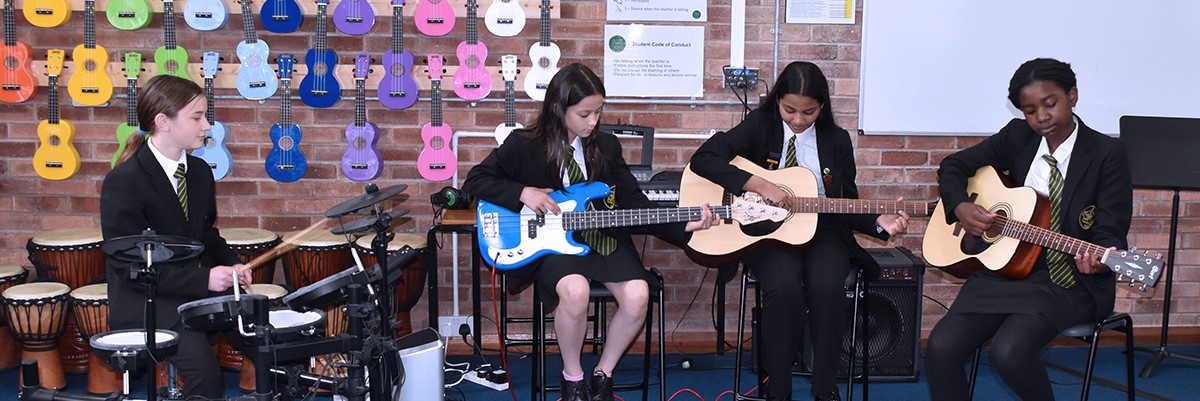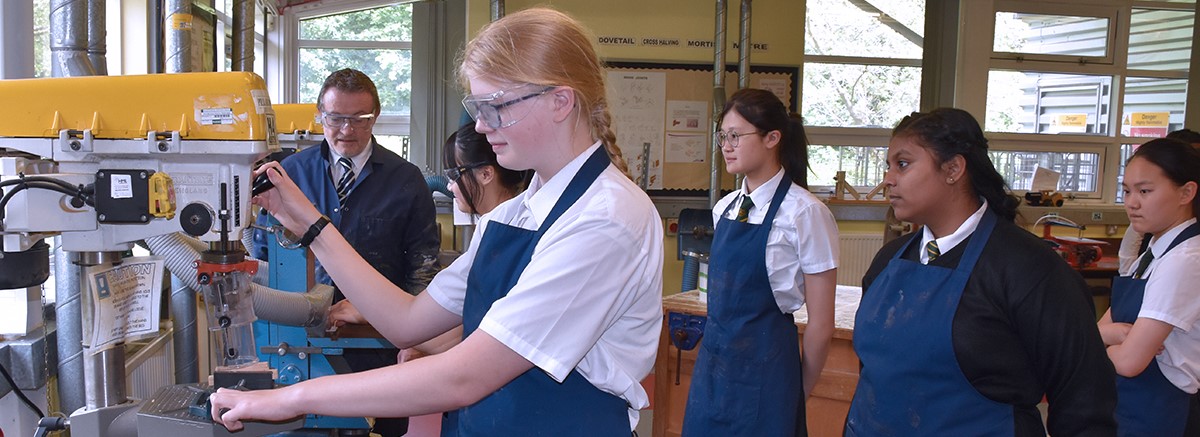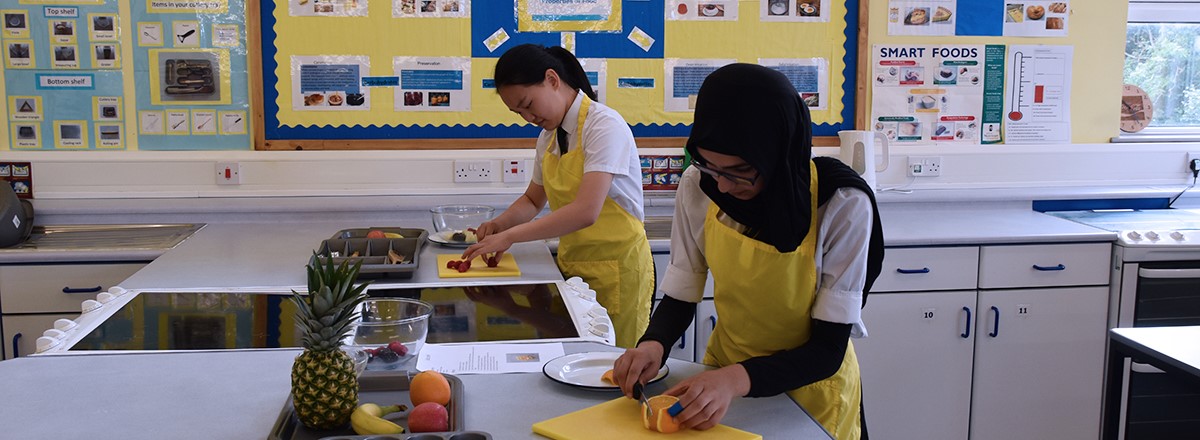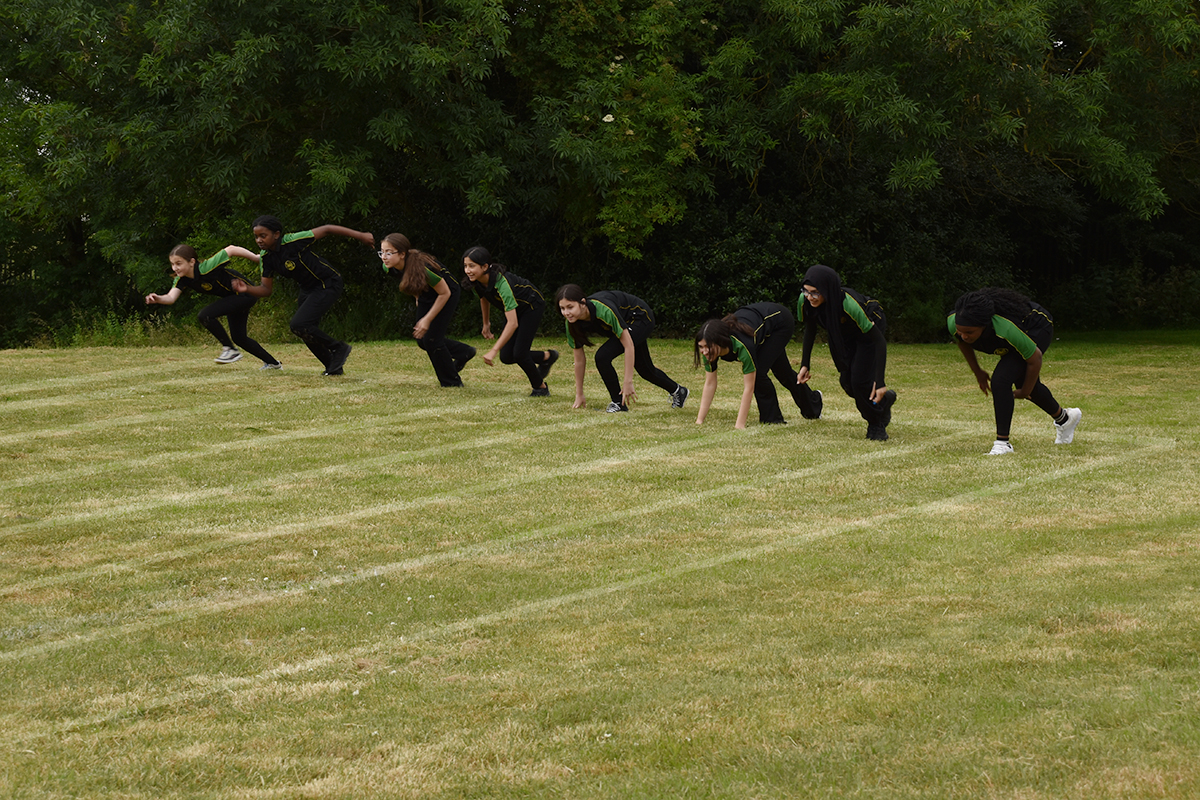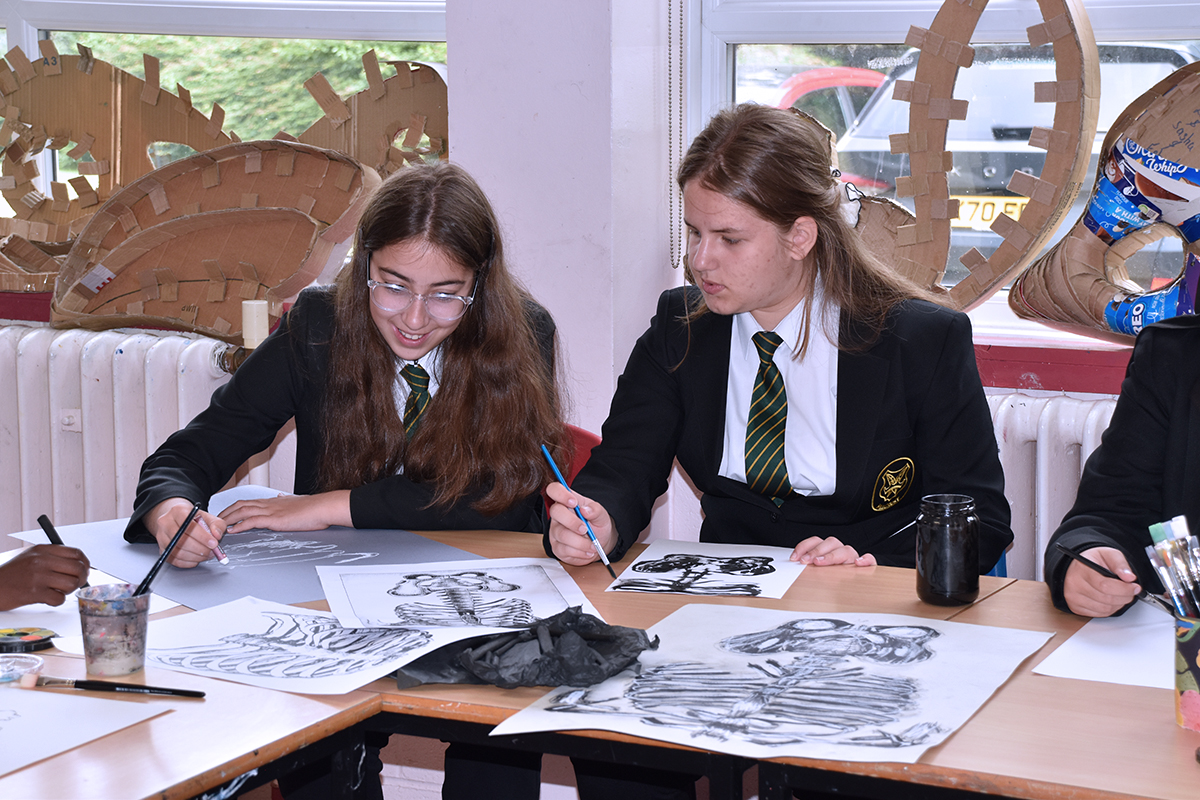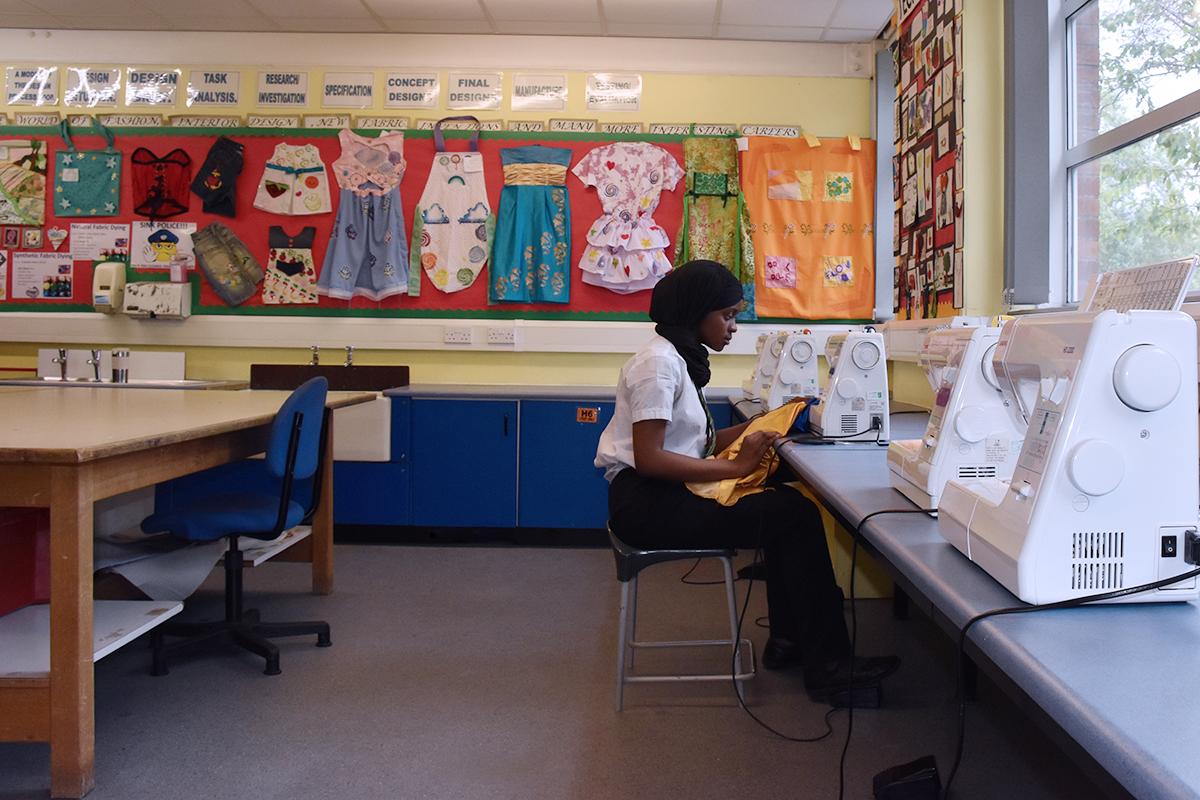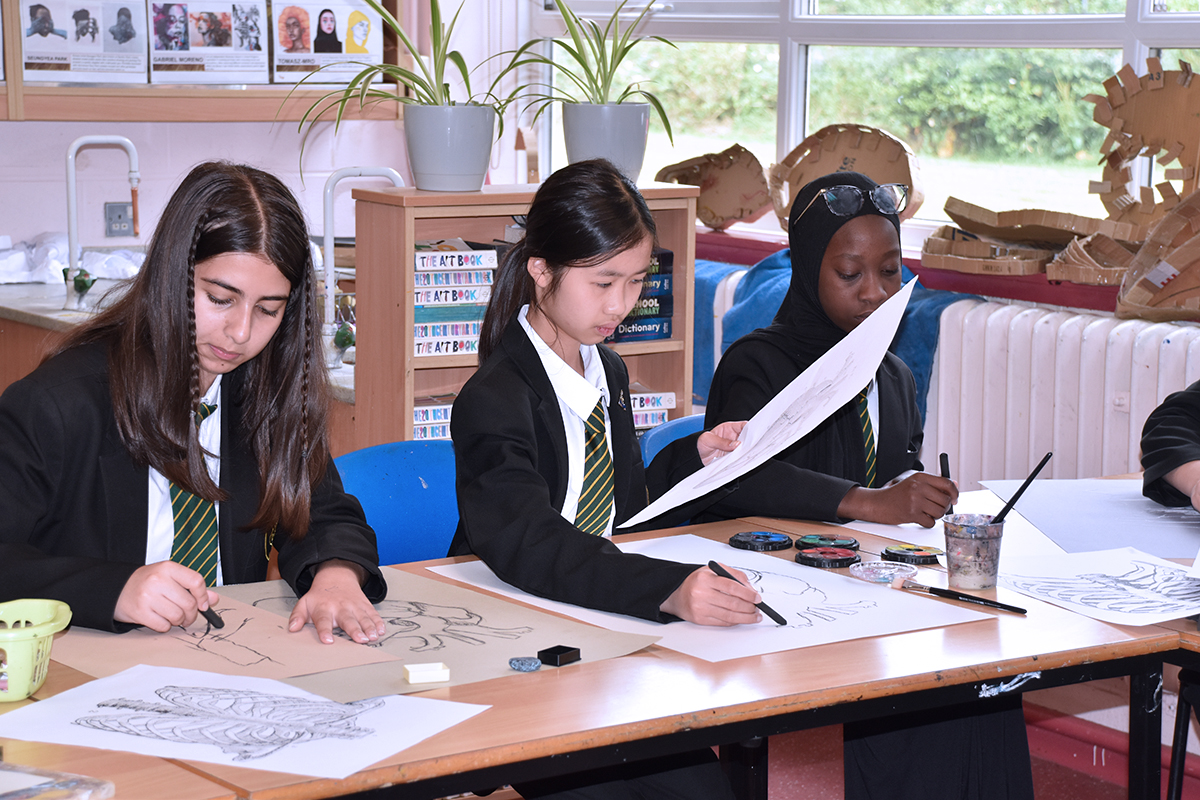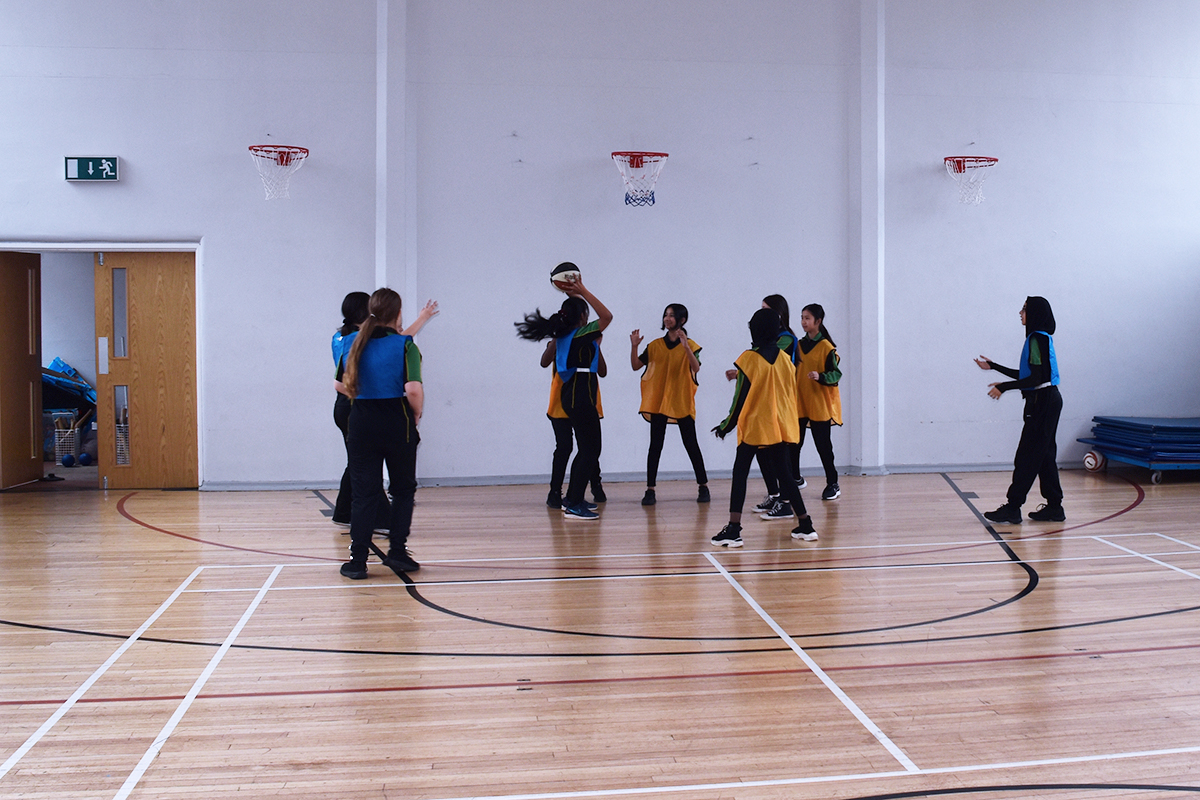Design Technology
KEY STAGE 3 CURRICULUM
Design and Technology is an inspiring, rigorous and practical subject. Through a variety of creative and practical activities, students are taught the knowledge, understanding and skills needed to engage in an iterative process of designing and making. They follow a rotational learning programme following Cooking and Nutrition, Resistant Materials and Textiles. Students follow the Design and Technology National Curriculum 2014. Our curriculum supports their transition from Key Stage 2 and develops the knowledge and skills required for the GCSE courses offered at KS4 in all areas of Design Technology.
Year 7
| Specialism | |
| Food |
Key Questions: Why are there so many rules in the Food room? Why does it matter what I eat? Why is food cooked? How do I use electrical equipment?
|
| Resistance Material |
Key Questions: Why are there rules in the workshop? What skills will I learn? How will I design and make a desk tidy? How will I design and make a wooden jewellery box? Students will have the opportunity to design, make and evaluate:
|
| Textiles |
Key Questions: Why are there rules in the Textiles room? Can I develop my hand and machine sewing skills? How can I add decorative embellishment to my design idea? Students will have the opportunity to design, make and evaluate: Printed and embellished cultural cushions. |
Year 8
| Specialism | |
| Food |
Key Questions: Why is temperature control important? Sauces – What are they? Why are they used? How are they made? Raising Agents- What are they? Why are they used? Why do I need to eat food? Development of knowledge and skills through focussed learning and practical activities. Selection of practical food products made include: Chicken / Vegetable skewers or Chilled Cheesecake, Pasta Bake – Roux or reduction sauce, Mechanical raising agent: Swiss Roll, Biological raising agent: Yeast product – Savoury/Sweet Pinwheels. Nutrient rich- Savoury Muffins. |
| Resistance Materials |
Key Questions: What is CAD/CAM? How will Tech Soft 2D aid the development of design ideas? Development of knowledge and skills through focussed learning and practical activities. Students will have the opportunity to design, make and evaluate:
Coated Steel key ring |
| Textiles |
Key Questions: What different methods exist in creating embroidery stitches and where can they be used effectively in a design? How can I develop my machine sewing skills safely? How can I add decorative embellishment to my design idea?
Students will have the opportunity to design, make and evaluate:
Printed and embellished Wall hanging/Organiser |
Year 9
| Specialism | |
| Food Module |
Key Questions: Is food a science? Can I make my own pasta? Where do bacteria come from? Why must my diet be balanced? Development of knowledge and skills through focussed learning and practical activities. Selection of practical food products made include: Investigation practical: Popcorn, Shortcrust pastry Tartlets, Flaky Pastry savoury product, Mini Victoria Sandwich Cakes, Viennese fingers. Savoury/sweet product for teenager. Investigation practical: Meringue/honeycomb. Investigation practical: making homemade pasta. |
| Resistant Materials |
Key Questions: What is waste management? What is a circular economy? How can we repurpose used plastic in order to reduce waste? Students will develop knowledge on waste management and a circular economy. Students will have the opportunity to design, make and evaluate creative and innovative prototypes based on the circular economy model. |
| Textiles |
Key Questions: How can we gain inspiration from artists/designers to create unique and sophisticated designs. How can I further develop my machine knowledge and sewing skills safely? How can I repeat my stencil printing and create a co-ordinating Applique? How does my work reflect my artist? Students will have the opportunity to design, make and evaluate: Printed and embellished work of art. |
Key Stage 4 Curriculum
AQA GCSE FOOD PREPARATION AND NUTRITION
OPTION SUBJECT
COURSE CONTACT: MR A FEATON - HEAD OF ART, DESIGN AND TECHNOLOGY
Exam Board Website:: http://www.aqa.org.uk/subjects/food/gcse/food-preparation-and-nutrition-8585
Course Content
This is a creative course which focuses on practical cooking skills to ensure students develop a clear understanding of nutrition, food provenance and the working characteristics of food materials.
Food preparation skills are integrated into five core topics:
- Food, nutrition and health
- Food science
- Food safety
- Food choice
- Food provenance
Students will make a wide selection of food products and also participate in Investigational activities.
Assessment Details
- Written Examination – 50%
- Non –exam assessment- 50%
- Task 1 Food Investigation
- Task 2 Food preparation assessment
Why Study This Course?
A career in the food industry due to the students’ extensive knowledge and skill in food development and production.
A career in the Health services due to the students’ ability to plan and prepare healthy food products for specific target groups. Leading on to AS/A2/ BTEC National courses and apprenticeships at Key Stage 5.
WJEC LEVEL 2 AWARD IN CREATIVE AND MEDIA-TEXTILES
OPTION SUBJECT
COURSE CONTACT: MR A FEATON - HEAD OF ART, DESIGN AND TECHNOLOGY
Course Content
This qualification prepares pupils by developing an in-depth knowledge of textile-based materials and their practical use within the fashion and Textiles industries. They will have the opportunity to develop skills in producing samples, prototypes, and finished products as well as the skills required to present work in sketchbooks and portfolios.
They will learn to apply technical and practical expertise to ensure that the product is fit for purpose. There will be the opportunity to use traditional skills as well as modern technologies. Pupils will also gain an understanding of commercial practice and potential career opportunities in the fashion and textiles industries.
The skills and knowledge gained will allow pupils to progress to a wide range of courses in both general and vocational qualifications. It is a particularly good preparation for A-level Art and Design Textiles and all related Level 3 vocational Art and Fashion and Textile qualifications. Pupils will also develop valuable transferable skills in teamwork and communication that will be of value to them no matter what career they choose to follow.
Assessment Details
This course is assessed through three units, all following a contemporary textiles pathway.
- Unit 1: Students create a proposal in response to a brief. External assessment with a 2-hour exam in March of Yr 11. Worth 25%
- Unit 2: Students complete an outcome in response to a brief. This is worth 25%. Internal assessment.
- Unit 3: Students are assessed on the production of a skills development project and portfolio. This is worth 50%.
Why Study This Course?
Studying textile design enables you to develop a range of subject-specific skills, in areas such as:
-
mixed media;
-
printed textiles;
-
embroidery;
-
surface design;
-
Textile retail management.
You will also gain a number of transferable skills that are sought after by many employers, including work independently, set goals, manage your own workload and meet deadlines.
Reading Lists
KEY STAGE 4 CURRICULUM
OCR GCSE ART AND DESIGN: TEXTILE DESIGN (J174)
OPTION SUBJECT
COURSE CONTACT: MR A FEATON - HEAD OF ART, DESIGN AND TECHNOLOGY
Exam Board Website: http://ocr.org.uk/qualifications/gcse/gcse-art-and-design-j170-j176-from-2016/
Course Content
The Art and Design course is aimed at students who enjoy Art and want to explore ideas to improve their skills within the subject. The course is made up of a variety of skills, techniques, and processes. Students’ skills will be developed through the start of the course, building up a bank of skills during year 9. This will then lead to portfolio projects in year 10, where students will be able to demonstrate their skills in Art and Design. In year 11 students will prepare for the art examination, which will be taken near the end of the spring term.
Skills and techniques that students will explore include printmaking, ceramics, drawing, painting, mixed media work and 3D work. Embedded in all of these skills are the links to contextual references and different cultures; work can also be influenced by students’ own interests. A key skill that is developed is learning to look at the world differently and finding alternative ways to reach conclusions about a piece of work.
Assessment Details
Students will be assessed in two ways for the final GCSE grade. The first is via a portfolio project. Students will build a body of work based on a theme of their choice. This will then result in a full portfolio of work that is assessed by the teacher and then externally moderated.
The second form of assessment is via an externally set examination task. Students will be given an examination paper by the examination board and have to prepare for it during the spring term of Year 11. They will then complete their final piece under examination conditions.
Why Study This Course?
Students should consider Art and Design if they are considering any career in the creative industry. These include, but are not limited to illustration, graphic design, theatre design, film production, architecture, magazine publishing, book publishing, journalism, product design, animation, interior design and fine art.
Art is also a course that encourages students to think in different ways – often making them more able to deal with different situations in a more creative way and is, therefore a highly suitable course for most career paths.
Design Technology Careers in the Curriculum Priorities
Careers intent statement: Art, Design & Technology.
The Art, Design and Technology department is committed to ensuring students study a wide and varied curriculum delivered by subject specialists. Pupils can access relevant career focused information and develop skills which will give the opportunity to explore future career development.
- Careers links identified in lessons will help to make informed choices regarding future career pathways across all areas of Art, Design and Technology. This will support and enhance the development of both transferable and employability skills gained throughout KS3 to be effectively utilised within KS4 and beyond.
- To develop departmental visual resources covering the wide variety of career opportunities for pupils to consider moving forward.
- Across the department there are many key elements to focus on, including problem solving, creativity, practical activity, analysis and evaluation. These will help pupils to gain experience and encourage them with the confidence to use their skills and knowledge for the world outside the classroom, better preparing them for their potential chosen career path.
- Pupils are encouraged to believe in their own abilities and be ambitious and confident enough to be creative, innovative and inspirational to themselves and their peers.
- The impact of careers in curriculum intent will be measured by student voice and evaluation exercises.

